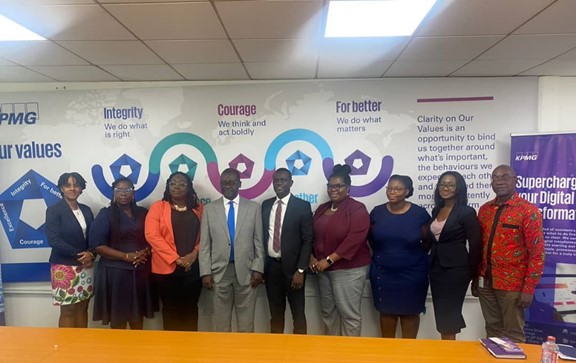Professional services firm KPMG, in partnership with the Ghana Institute of Procurement and Supply (GIPS), has launched the 2023 Procurement Enhancement Survey. The survey’s outcome will inform the adoption and practice of sound policies and actions that promote prudent and value-based procurement in the country.
Speaking at a brief session to unveil the survey, KPMG’s Partner-Head of Advisory Services, Andy Akoto, stressed the need for collective efforts that engender excellence in the procurement profession within public and private organisations.
According to him, it has become necessary to examine the domestic procurement and supply landscape and solicit feedback from both public and private organisations to inform policy actions in the practice of procurement in the country.
“We are grateful to GIPS for this landmark point in our collaboration; we expect that this survey will generate the right feedback from private businesses and public sector institutions where procurement-related infractions significantly impact productivity,” he noted.
President of GIPS, Simon Annan, on his part remarked that the survey was informed by the institute’s vision of creating vibrant systems and institutions which champion ethical and value-driven procurement for national development. “Africa’s economic woes will never be resolved without the professional execution of procurement and supply chain, which is the most potent tool for the creation of jobs and wealth,” he noted.
He added: “Our collective expectation is that this survey will directly impact individuals, communities and organisations, both public and private businesses, as well as non-governmental organisations.”
Mr. Annan therefore called on stakeholders within the procurement and supply chain ecosystems to contribute to the research work, which will position procurement as an enabler and reliable tool for social and economic growth.
GIPS Council Member and Director of Supplies at the Ghana Health Service, Mrs. Araba Kudiabor, commended management of KPMG, stakeholders and survey partners for contributing to the survey instrument and its subsequent roll-out.
She said the survey was timely, given the procurement profession’s significant recognition in recent years and the pivotal role it plays in national and global economies. “We hope that this survey will directly impact all sectors of the economy, because the findings will provide clear direction to government when it comes to policy formulation; collectively, we can change the narrative of procurement in Ghana based on the empirical evidence that we will obtain from this exercise,” she further indicated.










